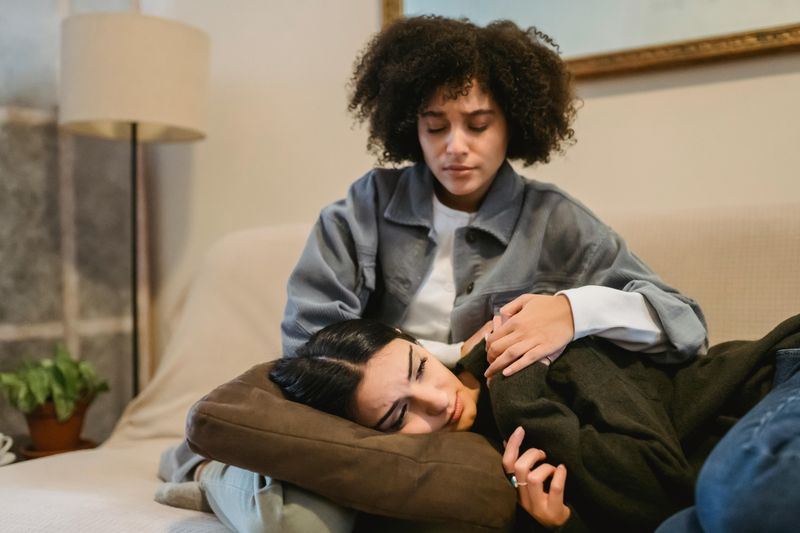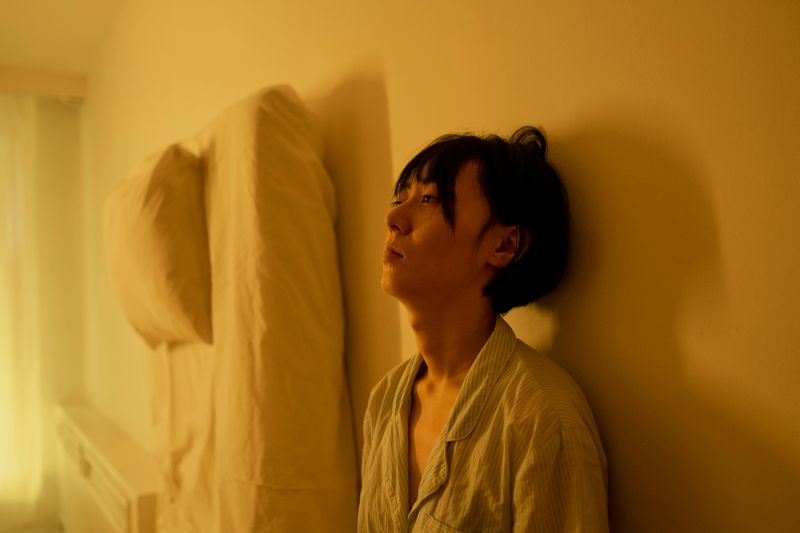Love should lift you up, not drag you down. When a relationship starts affecting your mental health, it can be hard to notice the changes happening right in front of you. Recognizing the warning signs early can help you take control of your happiness and make important decisions about your future.
1. You Feel Constantly Drained

Being around your partner leaves you feeling empty instead of energized. Every conversation feels like hard work, and you need hours alone just to recover from spending time together. Your body feels heavy, and even simple interactions leave you mentally worn out.
Healthy relationships should give you strength, not steal it away. When someone constantly takes from you without giving back, your energy reserves run dry. You might notice yourself avoiding plans or making excuses to stay apart.
This exhaustion goes beyond normal tiredness. Your emotional battery never fully recharges, no matter how much rest you get.
2. Your Self-Worth Has Disappeared

You used to feel confident and capable, but now you question everything about yourself. Your partner’s criticism has become your inner voice, constantly telling you that you’re not good enough. Small mistakes feel like massive failures, and you apologize for things that aren’t your fault.
Loving someone should never mean losing yourself. When your partner chips away at your confidence day after day, you start believing their negative words. You forget what made you special in the first place.
Friends might mention how much you’ve changed. You second-guess decisions you would have made easily before.
3. You’ve Stopped Enjoying Things You Love

Hobbies that once brought you joy now sit forgotten in the corner. Your partner dismisses your interests as silly or unimportant, so you’ve gradually given them up. Music doesn’t sound the same, and activities that excited you now feel pointless.
Depression often shows up as losing interest in life’s pleasures. When your relationship becomes your entire world, everything else fades into the background. You might not even remember what you enjoyed before.
This loss of passion is a red flag waving frantically. Your interests matter, and they’re part of what makes you unique and whole.
4. You’re Walking on Eggshells

Every word you say gets carefully measured before leaving your mouth. You constantly worry about triggering your partner’s anger or disappointment, so you monitor your behavior obsessively. The atmosphere at home feels tense, like a storm waiting to break.
Living in fear creates chronic stress that damages your mental health. You shouldn’t have to rehearse conversations or hide parts of yourself to keep the peace. This hyper-vigilance exhausts your nervous system and keeps you in constant anxiety.
Real love creates safety, not fear. When you can’t relax in your own relationship, something is seriously wrong.
5. You Feel Isolated From Everyone

Friends have stopped calling because you always cancel plans. Your partner doesn’t like your family, so you see them less and less. Social connections that once sustained you have slowly disappeared, leaving you alone with someone who keeps you isolated.
Abusive partners often separate you from support systems on purpose. Without outside perspectives, you can’t see how unhealthy things have become. Your world shrinks until your relationship is all that’s left.
Isolation feeds depression like oxygen feeds fire. Humans need community and connection to thrive, not just one person controlling their entire social life.
6. You Can’t Remember the Last Time You Smiled

It’s like joy belongs to someone else’s life, not yours. Laughter doesn’t come naturally anymore, and when it does, it feels empty. Smiling feels foreign, and happiness? It seems like something you’ll never actually touch.
Depression steals your ability to feel positive emotions. When your relationship constantly brings negativity, sadness, or conflict, your brain stops producing the chemicals that create happiness. You might feel numb instead of sad, like you’re just going through the motions.
Everyone deserves to feel happy regularly. If your relationship only brings darkness, it’s poisoning your mental health in dangerous ways.
7. Your Physical Health Is Suffering

Headaches have become your constant companion, and your stomach hurts for no medical reason. Sleep either won’t come or never feels restful, leaving you exhausted all the time. Your body is screaming that something is wrong through physical symptoms.
Mental and physical health are deeply connected. Chronic relationship stress triggers your body’s alarm systems, causing real medical problems. You might get sick more often, experience unexplained pain, or develop digestive issues.
Doctors might not find anything physically wrong, but that doesn’t mean you’re not suffering. Your body is reacting to emotional trauma in very real ways.
8. You Fantasize About Being Single

Sometimes, in the quiet moments, you catch yourself imagining life without them. You picture the freedom, the peace, the relief if it were over. And it’s not just a passing thought—you keep going back to these daydreams, mapping out every detail.
When you spend more time wanting out than wanting in, your heart is telling you something important. Healthy relationships make you grateful for your partner, not desperate to escape them. These fantasies reveal your true feelings beneath the denial.
Sometimes your subconscious knows what’s best before your conscious mind catches up. Listen to these signals instead of pushing them away.
9. You’ve Lost Hope for the Future

Plans for tomorrow feel pointless when you can’t imagine feeling better. Your relationship has drained your optimism, leaving you unable to see a positive future ahead. Everything feels heavy and permanent, like you’re trapped in darkness forever.
Hopelessness is one of depression’s most dangerous symptoms. When your relationship causes this level of despair, it’s actively harming your mental health. You might feel stuck, believing things will never improve or change.
Recovery starts with recognizing that your current situation doesn’t have to be your forever. Hope can return when you make changes that prioritize your wellbeing and happiness.

Comments
Loading…